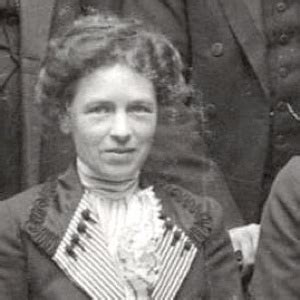A Quote by Jiddu Krishnamurti
We are domesticated animals, revolving in a cage which we have built for ourselves - with its contentions, wranglings, its impossible political leaders, its gurus who exploit our self-conceit and their own with great refinement or rather crudely.
Related Quotes
Cult leaders are often self-styled prophets who have not studied with great teachers or undergone lengthy training or discipline themselves. . . Many of the most dangerous cultic figures of our times have no such stabilizing context of tradition, lineage or transmission, but are self-proclaimed gurus who sway their followers through their charismatic talents. . . .
...by the time we understand the pattern we are in, the definition we are making for ourselves, it's too late to break out of the box. We can only live in terms of the definition, like the prisoner in the cage in which he cannot lie or stand or sit, hung up in justice to be viewed by the populace. Yet the definition we have made of ourselves is ourselves. To break out of it, we must make a new self. But how can the self make a new self when the selfness which it is, is the only substance from which the new self can be made?
In a world in which we are exposed to more information, more options, more philosophies, more perspectives than ever before, in which we must choose the values by which we will live (rather than unquestioningly follow some tradition for no better reason than that our own parents did), we need to be willing to stand on our own judgment and trust our own intelligence-to look at the world through our own eyes-to chart our course and think through how to achieve the future we want, to commit ourselves to continuous questioning and learning-to be, in a word, self-responsible.
But the conceit of one's self and the conceit of one's hobby are hardly more prolific of eccentricity than the conceit of one's money. Avarice, the most hateful and wolfish of all the hard, cool, callous dispositions of selfishness, has its own peculiar caprices and crotchets. The ingenuities of its meanness defy all the calculations of reason, and reach the miraculous in subtlety.
The biggest adversary in our life is ourselves. We are what we are, in a sense, because of the dominating thoughts we allow to gather in our head. All concepts of self-improvement, all actions and paths we take, relate solely to our abstract image of ourselves. Life is limited only by how we really see ourselves and feel about our being. A great deal of pure self-knowledge and inner understanding allows us to lay an all-important foundation for the structure of our life from which we can perceive and take the right avenues.
There is provided an escape from the narrowness and poverty of the individual life, and the possibility of a life which is other and larger than our own, yet which is most truly our own. For, to be ourselves, we must be more than ourselves. What we call love is, in truth . . . the losing of our individual selves to gain a larger self.
Dominion does not mean domination. We hold dominion over animals only because of our powerful and ubiquitous intellect. Not because we are morally superior. Not because we have a "right" to exploit those who cannot defend themselves. Let us use our brain to move toward compassion and away from cruelty, to feel empathy rather than cold indifference, to feel animals' pain in our hearts.
Nothing can tell us so much about the general lawlessness of humanity as a perfect acquaintance with our own immoderate behavior. If we would think over our own impulses, we would recognize in our own souls the guiding principle of all vices which we reproach in other people; and if it is not in our very actions, it will be present at least in our impulses. There is no malice that self-love will not offer to our spirits so that we may exploit any occasion, and there are few people virtuous enough not to be tempted.









































